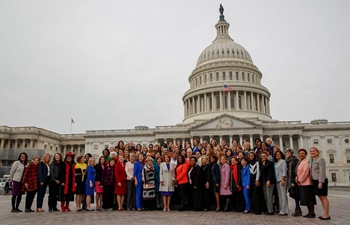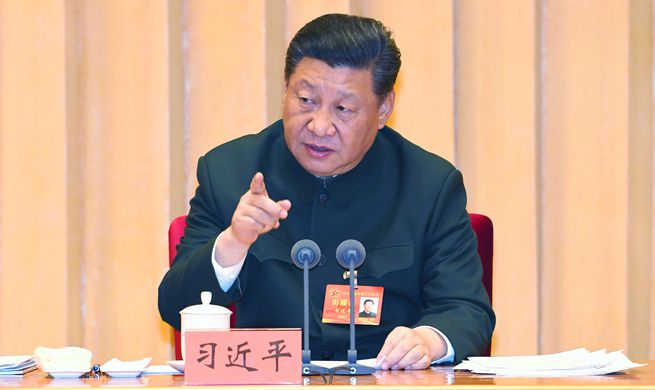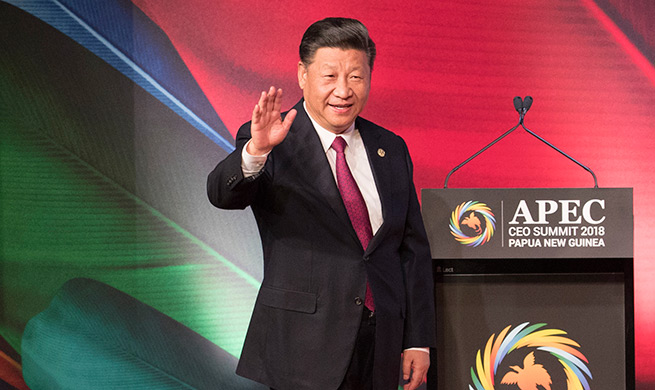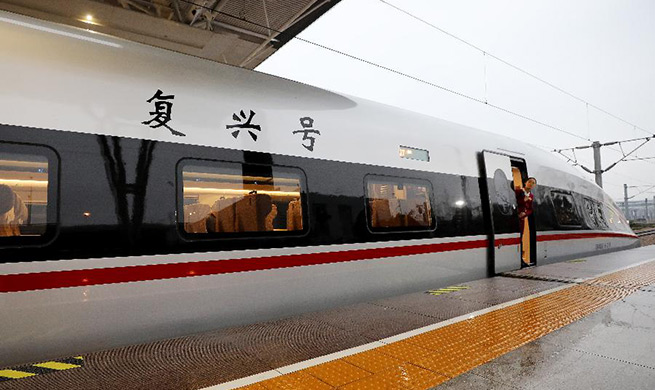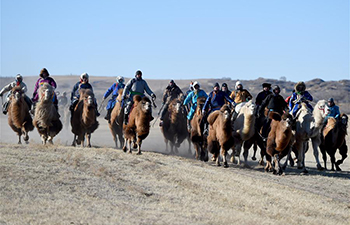BAGHDAD, Jan. 5 (Xinhua) -- The visit of Iraqi President Barham Salih to Turkey is expected to open a new page of better mutual relations as the region is witnessing complex developments, experts said.
On Friday, a statement by the presidency office said Salih and his delegation ended their visit to Turkey, where the two sides held fruitful talks on boosting bilateral ties.
During the visit on the invitation of Turkish President Recep Tayyip Erdogan, the two leaders agreed to "expand cooperation horizons ... (and) exchange views on the developments in the region," the statement said.
Nadhum al-Jubouri, an Iraqi political expert and specialist in Iraqi, Turkish and Kurdish relations, shed light on the significance of Salih's visit to Turkey, particularly "after the surprise decision of U.S. President Donald Trump to withdraw the U.S. troops from neighboring Syria."
"Iraq was keen to reach out to Turkey, an important ally of Washington and an NATO member, and Salih was eager to discuss terrorism issue as Iraq is still fighting the Islamic State (IS) remnants and endeavors to end spillover of unrest in its northern border with Turkey and in neighboring Syria," Jubouri told Xinhua.
Another purpose of Salih's visit to Turkey is to ensure Iraq's share of water in the big rivers of Tigris and Euphrates originating from eastern Turkey, where Turkey has been building a massive irrigation and water-management project known as Southeastern Anatolia Project.
The project has reduced the flow of the rivers, raising fears among Iraqis over a crisis of drinking water, reduction in agricultural lands and increasing desertification.
"Iraq has frequently complained about acute shortage in its water share, and Salih was keen to clarify that such crisis would drag Iraq into turmoil," Jubouri explained.
Meanwhile, Turkey is trying to make use of the U.S. withdrawal from Syria to deal a blow to the outlawed Kurdish Workers' Party in northern Iraq and the Kurdish militants inside Syria, he said.
It is also trying to exploit the U.S. sanctions on Iran to fill its vacuum in Iraq, as part of the sanctions' goals is to reduce the Iranian influence in Iraq, the Iraqi expert added.
For Jamal Beirah, a Kurdish analyst, Salih's visit to Turkey came as the two countries are in urgent need for political and diplomatic coordination to address the regional political, economic and security tension.
"Turkey is facing internal and external problems. Therefore, it needs to promote its relations with the neighboring countries, including Iraq which has border with Turkey in addition to significant political, economic and commercial interests," Beirah said.
At a joint press conference with Erdogan, Salih highlighted the need for Iraq and Turkey to "work together to end the conflicts in the region."
"Iraq and Turkey need a comprehensive agreement to end all pending issues. We have to cooperate to achieve common security to our countries," he said.







